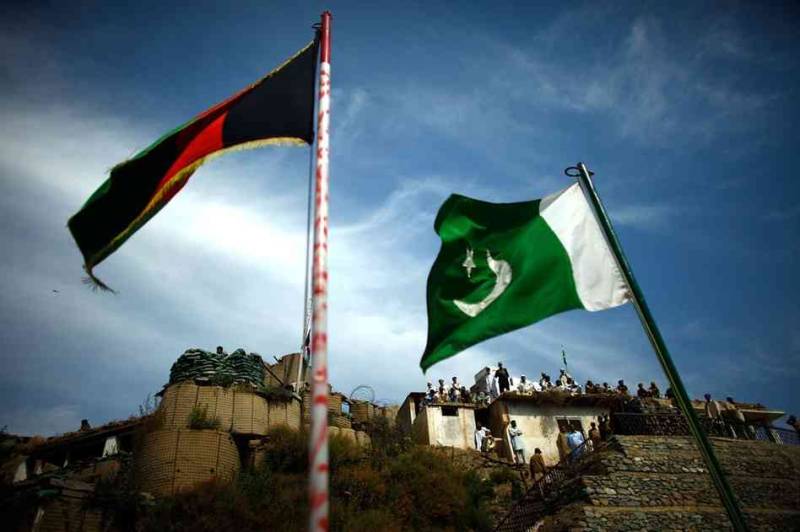When Afghanistan’s border police launched an attack on Pakistan Army’s team conducting census work in border villages of Balochistan, a number of innocent civilians lost their lives due in the attack.
Pakistan’s paramilitary forces retaliated and attacked several Afghan Army check posts. According to reports, the dispute between the two sides is based on Killi Jahangir and Killi Luqman villages. General Amir, commander of the Southern Command of Pakistan Army says the two villages belong to Pakistan and no compromise would be made on the nation’s territory.
Internally, Afghanistan is facing serious problems. There is a growing power struggle between different political groups. Rifts between Ashraf Ghani and Abdullah Abdullah are also intense.
Besides this, the recent Mazar-e-Sharif attack resulted in the resignation of Afghanistan’s defense minister, and thus Kabul is trying to divert the public’s attention from its precarious internal situation.
Pakistani military, on the other hand, claims that 50 Afghan troops were killed while more than 100 were injured in a retaliatory action. During the third round of meetings between the two sides, a decision was reached to conduct the survey in the presence of geological experts.
The Afghan Army offensive had its roots in Kandahar. The current Police chief of Kandahar is Lieutenant General Raziq Achakzai; a vehement adversary of Pakistan.
General Raziq, during his tenure at the National Directorate of Security NDS, has been accused of supporting Baloch separatists. Recently General Raziq banned Pakistani currency in Kandahar. He has also staunchly criticized Pakistani military establishment in various interviews. The Afghan Army soldiers who participated in Chaman attack belong to Kandahar army command’ and General Raziq is their commander.
Strategically, the Afghan offensive was a mistake. According to Global firepower, a think tank, Pakistan Army ranks at 13 in the world. It has 620,000 active troops and 500,000 in reserves, along with 80,000 Paramilitary forces deployed along the Western border.
In addition to that, Pakistan has 2,924 tanks, 2,828 armored fighting vehicles AFV’s, 3,278 towed artillery, 134 Multiple Launch Rocket systems MLR’s and besides this a professional air force with 951 aircrafts which includes fighters, interceptors and transport jets.
On the other hand, the Afghan military’s number is 200,000. But only 25,000 of them can independently launch an operation without the supervision of Nato forces. Afghanistan has no air force and its army is lacking heavy equipment.
All these statistics indicate that Afghanistan’s offensive was a strategic miscalculation. Lieutenant General Amir Riaz – commander Southern Command of Pakistan Army – stated that Afghanistan’s attack was foolishness and that Pakistan had destroyed four to five check posts of Afghan Army in retaliation.
In the recent days, several high level delegates visited Kabul in order to mend ties. First, Pakistan parliamentary delegation led by Speaker Ayaz Sadiq visited Kabul and then Inter-Services intelligence (ISI) chief Lieutenant General Naveed Mukhtar visited Kabul.
According to inner circles, Speaker Ayaz Sadiq invited President Ahraf Ghani to visit Pakistan. Later on, the invitation was rejected by President Ashraf Ghani who said that Pakistan should arrest the perpetrators of Mazar-e-Sharif and American university attacks.
According to Rahimullah Yousafzai – an expert on Pak-Afghan affairs – blaming Pakistan for every internal problem is beyond understanding and at the time when Kabul needs Islamabad to resolve Afghan crisis these developments are very upsetting.
Pakistan has mobilized approximately 170000 troops along Western border in order to fight terrorism, which is greater than Natoforces combined in Afghanistan. Furthermore, Pakistan has suffered more casualties than Nato states in war against terrorism. International community needs to acknowledge Pakistan’s sacrifices in this war, and thus pressurize Afghanistan to avoid such confrontation. But Afghanistan also needs to stop playing in the enemy’s hands.
India’s growing presence in Afghanistan is a serious concern for Pakistan. There are reports that Afghan and Indian intelligence agencies are working together to disrupt work on China-Pakistan Economic Corridor (CPEC). Afghanistan should realize that Pakistan is its neighbor with whom it shares a long border and any activity that undermines Pakistan will only destabilize the region further. Both Afghanistan and Pakistan are facing a common enemy. Kabul and Islamabad need to resolve all outstanding issues through dialogue. The continuous impasse in relations is helping non state actors.






